
views
Maintaining Your Energy

Eat breakfast. Studies have shown that people who eat a healthy, balanced breakfast in the morning are more alert and energetic than those who skip breakfast. Aim for foods high in protein, like eggs, tofu, yogurt, or peanut butter. Or choose nutrient-rich food options like oatmeal and fresh fruit. These foods will fuel your body through the day and give you the energy you need to stay awake and active.

Drink coffee or tea. Caffeinated beverages can help you combat sleepiness and make you feel more wakeful and energetic. And drinking coffee or tea can bring plenty of health benefits, too. These naturally caffeinated beverages are chock full of antioxidants, and recent studies suggest that drinking coffee can even decrease your risk of developing depression. Don't drink too much! Excessive caffeine consumption can cause anxiousness and irritability. Drinking too much coffee can also interfere with your ability to have a good night of sleep after you make it through the day. Opt for coffee over energy drinks. An 8 oz. cup of coffee typically contains more caffeine than the same serving size of most energy drinks.

Stay hydrated. Drinking enough water is important to maintain your body's natural functions, and dehydration can actually make you feel even more tired.
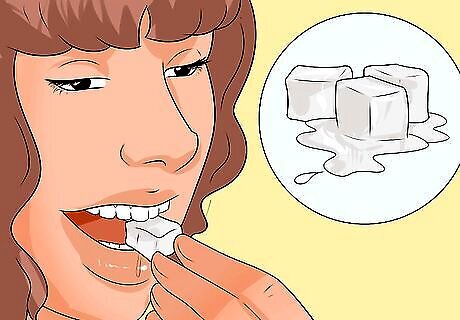
Chew ice. The physical act of chewing keeps your body awake, and ice comes with the additional benefits of being refreshing and hydrating.
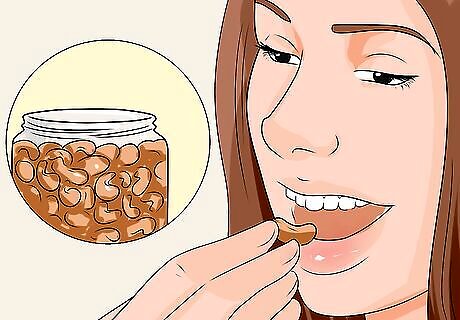
Take a snack break during the day. Snacks high in protein and vitamins, like nuts or fresh fruit, can help give you an energy boost between meals when your body starts to drag.
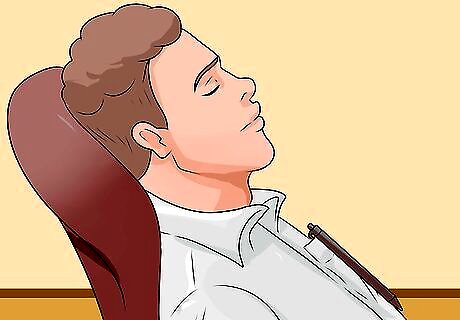
Take a nap, if you can. Short naps can boost your energy levels and leave you feeling more alert, awake, and able to perform at work. Even just a brief 15-20 minute nap can help. Don't nap for too long. Napping for more than 30 minutes can lead to increased grogginess after waking. Remember that you may feel groggy for about 15 minutes after waking. It might be a good idea to drink coffee immediately after a nap.
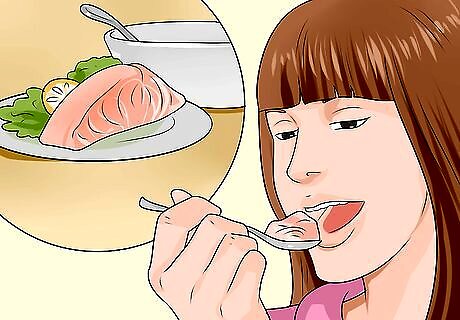
Eat a hearty lunch. Your body needs most of its calories in the morning and afternoon. Give yourself the fuel you need when you need it most. Be sure to make healthy food choices. Overdoing it on calories or sugar at lunch can leave you feeling more tired in the afternoon.
Staying Active
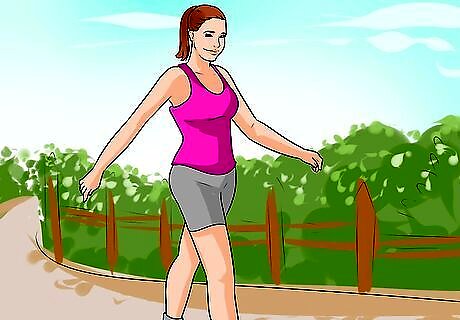
Get in a light workout. Even a short, brisk walk can help wake you up and give you the energy you need to make it through the day.
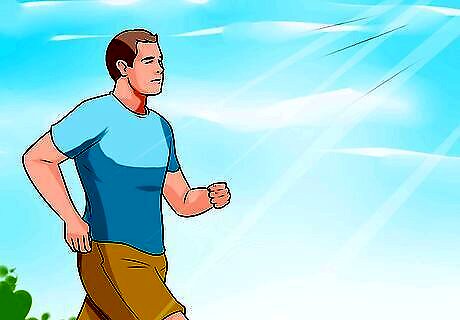
Spend some time in the sun. Experts have found that being immersed in natural light can increase wakefulness and make you feel more alert as you go through your day.

Change your environment. If possible, work with the windows open to allow fresh air to enter, and try listening to music to keep you going.
Managing Your Time
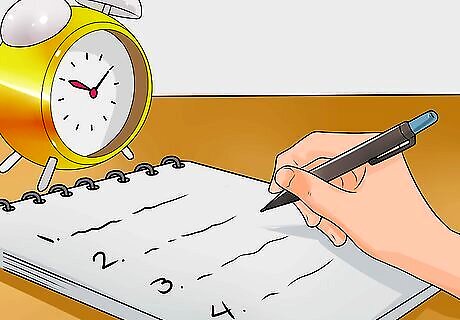
Make a list. Plan out everything you need to do during the day, and arrange them in order of importance. This will help you remember everything you need to get done. It will also give you a sense of capability and provide you with a visual reminder of both what you've accomplished and what tasks remain.

Work efficiently. Aim to get your most challenging or complex tasks done earlier in the day, when you have more energy.

Reward yourself with a break. Disengaging from homework, studying, or work projects for a short period of time can improve productivity by making you feel more refreshed and recharged, and it can motivate you to get through your next set of tasks..
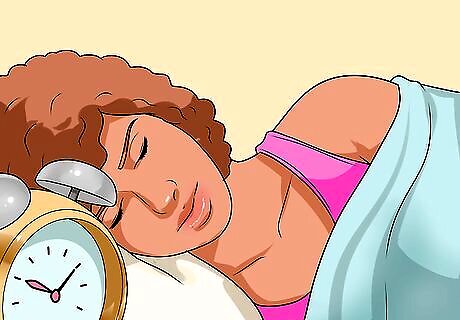
Return to your normal sleep schedule. After pulling an all-nighter, it's important to return to your regular habits. Go to bed around the time you normally would, or perhaps a little earlier than usual, and set your alarm for the same time you would normally wake up.

















Comments
0 comment